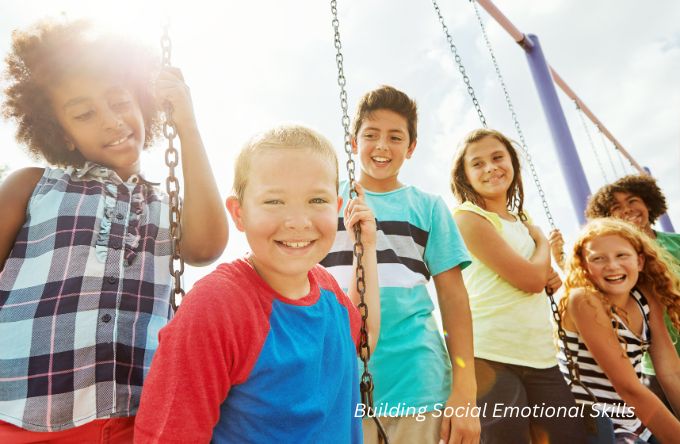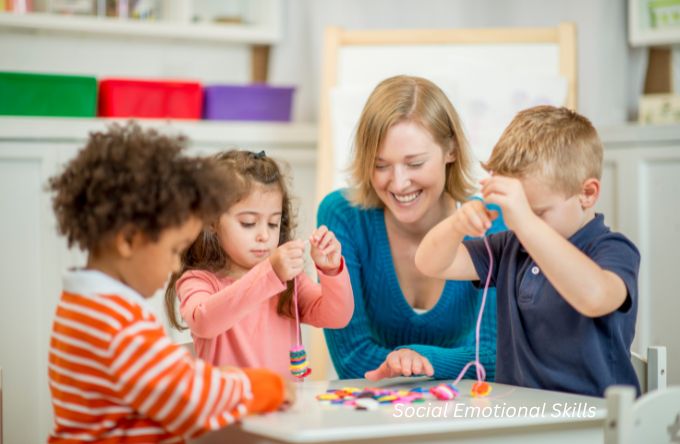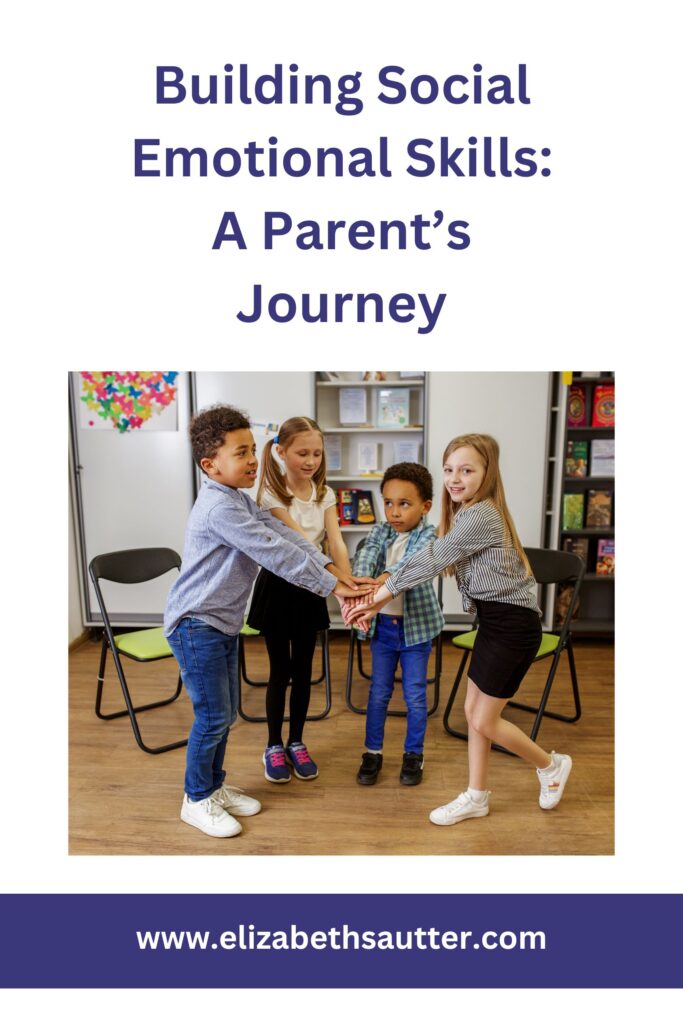Have you ever found yourself in a battle of wills with your child over something as simple as picking up toys? You’ve asked—maybe once, maybe ten times—and instead of compliance, you’re met with resistance. Your frustration builds, and, before you know it, your child is just as angry as you are. Sound familiar?
Moments like these highlight a deeper truth about parenting: emotions play a huge role in how we connect, communicate, and solve problems with our kids. And when we lean into understanding those emotions—ours and theirs—we unlock the key to building stronger relationships and teaching essential social emotional skills that will serve our children for life.
As a parent, I’ve learned that cultivating emotional awareness isn’t about being perfect or having all the answers. It’s about showing up, staying curious, and taking small steps every day to nurture emotional growth in our families. Let’s dive into what this means and how you can start fostering social emotional skills in your child today.
What Are Social Emotional Skills?

Social emotional skills encompass the ability to recognize, understand, and manage our own emotions while being attuned to the feelings of others. For kids, this means learning how to:
- Name their feelings (e.g., “I’m frustrated!” instead of melting down).
- Express emotions safely and constructively.
- Navigate social interactions with empathy and understanding.
These skills don’t come naturally—they’re learned through modeling, practice, and guidance from the adults in their lives.
Why Are Social Emotional Skills So Important?
As parents, we want our kids to thrive—not just academically, but emotionally and socially. Strong social emotional skills set the foundation for success in every area of life:
1. Building Healthy Relationships
2. Handling Big Emotions
Social emotional skills also play a huge role in school readiness and performance. Children who can manage frustration, stay focused, and ask for help when they need it are more likely to succeed in the classroom.
4. Fostering Independence
How Can Parents Foster Social Emotional Skills?

1. Start with Yourself
I’ve learned that my kids often mirror my emotions. When I’m calm, they’re more likely to stay calm too. When I lose it, well… you get the picture. That’s why the first step in fostering emotional skills is recognizing and managing your own feelings.
One practice that’s helped me is pausing before reacting. For example, when my child refuses to pick up their toys, I take a deep breath and ask myself, Why am I feeling so frustrated? Is it really about the toys, or am I tired, overwhelmed, or holding unrealistic expectations?
By modeling emotional self-awareness, I show my kids that it’s okay to feel frustrated—and that we can choose how we respond.
2. Create Space for Open Conversations
Kids don’t always volunteer what they’re feeling, especially when we ask the usual, “How was your day?” Instead, I’ve found that asking open-ended questions like, “What made you happy today?” or “Was there anything that felt hard?” encourages my kids to share more.
When they open up, I try to listen without jumping in to fix things. Instead of saying, “It’s no big deal,” I’ll echo back what they’re feeling: “It sounds like you felt really left out when your friends didn’t play with you.” These moments of connection help kids feel heard and teach them to identify and articulate their emotions.
3. Use Stories and Play
4. Incorporate Social Emotional Learning Activities
Simple activities can go a long way in building emotional awareness. Here are a few of my favorites:
- Feelings Check-Ins: Use a chart or cards with different emotions, and ask your child to point out how they’re feeling. We have used the Zones of Regulation in our family for many years with success.
- Mindful Breathing: Teach them to take slow, deep breaths when they’re upset. My go-to is “smell the flower, blow the candle.”
- Emotion Jars: Have your child fill jars with colored water or beads to represent different feelings, then talk about what each one means.
- Use books and movies to talk about the characters’ feelings and problem solving situations as you read or watch the story.
These activities make learning fun and give kids practical tools to manage their emotions.
Social Emotional Awareness in Everyday Life
Beyond individual emotions, social emotional awareness helps kids understand and navigate group dynamics. Whether it’s resolving a playground misunderstanding or handling online interactions, these skills prepare them to handle life’s social complexities with empathy and confidence.
The Long-Term Rewards
The journey to building social emotional skills isn’t always easy. There are still days when I lose my patience or struggle to connect. But when I see my kids pause to take a breath instead of yelling, or when they tell me how they’re feeling instead of shutting down, I know the effort is worth it. My older son has said that he is using so many of the skills he has learned over the years in his young adult life and his friends come to him for advice on how to handle situations.
Fostering social emotional skills involves strengthening our relationships and creating a home where everyone feels understood and supported.
If you’re ready to dive deeper into this journey, I encourage you to explore my resources here. It’s packed with 365 ideas, tools, and activities to help your child cope, connect, and thrive.
Parenting isn’t about perfection—it’s about progress. And with every step we take to nurture our kids’ social emotional skills, we’re setting them up for a lifetime of connection, resilience, and success.
 Join the Upcoming Workshop –
Join the Upcoming Workshop – 

